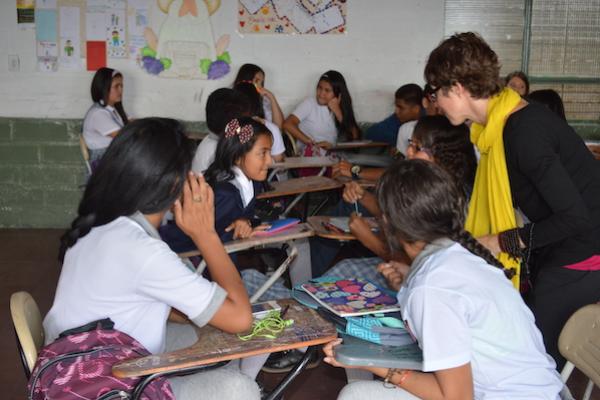
Join us for a lecture on the relationship between critical interculturality and challenging pedagogical practices in Latin America's English language teaching contexts with Dr. Martínez-Luengas, from ÚNICA - Institución Universitaria Colombo Americana, Colombia.
Abstract
This project focuses on working together (mutually) with eight English language teachers in four Latin American countries. Research on language acquisition and learning was traditionally conducted (sometimes in collaboration with language teachers) and reflected their research traditions, using experimental, ethnographic, discourse, or interactional analysis (Chaudron 1988), often to identify “the suitable/contextual practices in language teaching or learning." The process of executing this postdoctoral study is based on Language Teacher Education and is focused on a Dialogue between (shared) ELT (English Language Teaching) practices in Latin America.
On the same token, this research presents three highlighting topics: culture, language, and education. These are of vital relevance to the realities of the researcher of this study, as well as to the uncertainties, challenges, and options of Latin American contexts and the teaching and learning subjects who are immersed in these lands. During the development of this study, it can be a transversal core that will give an opportunity to reflect, discuss, and interact. The focus will be Interculturality as it brings together issues of cultural language in education.
During the talk it is possible to identify constructs/challenges about Teacher Education (EFL perspective). Drawing on language teacher education, Pennycook (2004) persuaded teachers to: “take into account our students' embodied stories of learning and teaching, the memories, pains, and desires that have been written on their educated bodies.” (p. 333). Critical Interculturality, that constitutes a distinct imaginary of society, allowing us to think and create the conditions for a different social power, as well as a diverse condition, both of knowledge and existence, pointing to decoloniality (Walsh, 2009. p.31). And, Intercultural Translation, Menezes and Duboc (2021) problematize the intercultural dialogue concerning pedagogies. By assuming that i) many of us in language teaching are still mesmerized by the fetish of method that has historically marked most language teaching approaches. (p.877). This talk will contribute over a reflection about what intercultural issues make it difficult or facilitate the pedagogical practices of Latin America ELT Educators.
Bio
Dr. Miguel Martínez-Luengas is a Latino Educator. He has a B.Ed. in Teaching English and a Master’s in teaching English as a Foreign Language. Doctor in Education, majoring in Education in ELT. His research areas deal with Decoloniality/Critical Interculturality, Subject positioning, Bilingual Education, and Teacher/Research Education. He’s a faculty member at ÚNICA institution- Grad Programs, in Colombia, South America.
